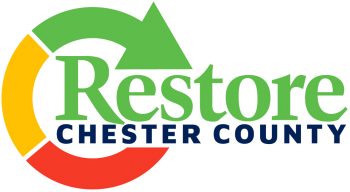By Mike McGann, Editor, the Times @mikemcgannpa
 As parts of the state move to Green status and eight more counties move to Yellow — with Chester County just one week from moving into Yellow — a local State Rep. is asking Gov. Tom Wolf to reconsider his limit on hair salons in areas with a Yellow status.
As parts of the state move to Green status and eight more counties move to Yellow — with Chester County just one week from moving into Yellow — a local State Rep. is asking Gov. Tom Wolf to reconsider his limit on hair salons in areas with a Yellow status.
As of right now, only areas in Green status are permitted to have barbers and hair salons open — and only on an appointment basis with social distancing, masks and other recommendations from the Centers for Disease Control. State Rep. Melissa Shusterman (D-157) sent a letter to the Governor asking that he consider tweaking the rules, much as he did earlier this week on outdoor dining for restaurants in Yellow status counties.
Her letter details safety precautions that could easily be taken to ensure the safety of customers, such as operating at 50% capacity.
“As restrictions begin to loosen and small businesses take steps toward reopening, salons and barbershops could easily be included in Yellow Phase guidelines with industry-specific safety protocols in place,” Shusterman said in a statement. “Tuesday was a victorious day for restaurant owners as we learned that they could serve patrons outside starting on June 5. This is the kind of creative solution that should serve as an example moving forward and help get Pennsylvanians back to work as quickly and safely as possible.”
Although acknowledging great care would have to be taken, Shusterman expressed concern that many smaller salons and barbers would never reopen if not allowed to do so soon.
“Many small businesses throughout the commonwealth cannot remain closed much longer without closing permanently,” she said. “If we are able to help them while preserving public health and safety, we need to make every effort to do so.”
Fellow Chester County State Representatives Dan Williams (D-74) and Christina Sappey (D-158) also signed on to the letter.
Meanwhile, new COVID-19 cases continued their slow, but steady decline, with the state Department of Health (DOH) reporting 693 new cases on Thursday, bringing the state’s total to 70,735. DOH reported 91 new deaths, bringing the state death toll to 5,464.
Also, in Harrisburg, Wolf announced Friday that he had signed an unconventional interim state budget that only funds part of the year — except for education, which gets 12 months of funding.
“Education must remain a priority even during a pandemic and this budget provides schools with the stability to continue building on the progress we have made to prepare our children for a successful future,” Wolf said in a statement. “Reaching an early budget agreement under these challenging circumstances is encouraging as we continue to fight the spread of COVID-19.
“While this is an encouraging step in the right direction, more needs to be done to ensure Pennsylvania has the resources it needs to protect key programs and investments.”
The $25.75 billion General Fund budget in HB 2387 — which passed only narrowly in the State House, with minimal Democratic support — includes an additional $2.6 billion in federal funding provided through the Coronavirus Aid, Relief, and Economic Security Act, known as the CARES Act. The budget sustains funding at current year levels for Pre-K Counts and Head Start, basic and special education in K-12 schools, and higher education. The budget also provides $300 million from the CARES Act to make up for a decline in gaming revenue that annually supports school property tax relief for homeowners.
As this budget is some $8 billion lower than last year’s budget, it is clear Wolf and the General Assembly still have work to do.
“As the state’s economy begins to reopen from the public health emergency, there are still unanswered questions about the state’s finances, but this agreement is an important step to stabilize our schools and put Pennsylvania on a path to recovery,” Wolf said.
Wolf also vetoed a bill that would have limited his ability to penalize businesses in counties that opened before getting state approval. Those businesses face loss of liquor licenses and insurance loss potentially for violating the Governor’s order.






